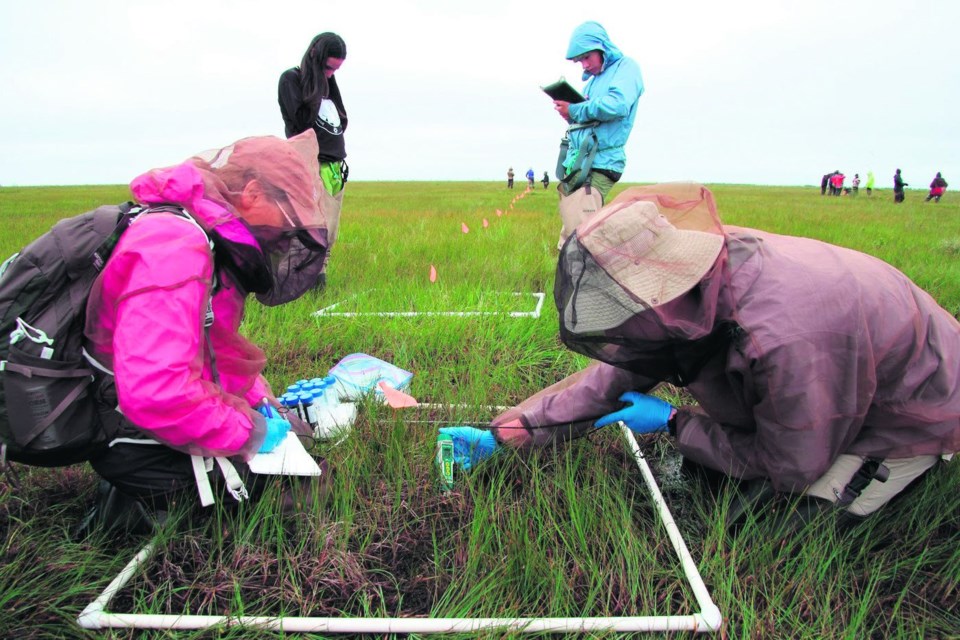As part of a University of Saskatchewan research project, small teams of high school students from Saskatchewan and Manitoba will spend their summers in bug jackets, venturing into the wilderness to measure permafrost and track caribou around Churchill, Man.
Originally delayed due to COVID-19, the three-year project is funded by a $129,000 grant to Usask agriculture researcher Ryan Brook from the Natural Sciences and Engineering Research Council’s (NSERC) PromoScience Program, which supports projects that promote an understanding of science and engineering among young Canadians.
Beginning in 2021 Brook will lead small teams of high school students, Indigenous undergraduate students, high school teachers and staff from Parks Canada in a collaborative long-term study of the impacts of climate change in the Arctic.
“The program will engage youth in science, targeting under-represented Indigenous youth and girls in Saskatchewan and Manitoba,”Brook said.
“It’s the experience of a lifetime. Students will be the sole human inhabitants of a national park. Visiting this place can literally change a student’s life.”
Every August, a student-teacher-researcher team will helicopter in to conduct field work in Manitoba’s remote Wapusk National Park on the western bank of Hudson Bay.
Students will measure vegetation cover, collect plant and soil samples and record the thickness of permafrost at several locations in the park adding to extensive climate data collection started by Brook in 1998.
Every winter a smaller team will measure lichen and snow conditions of caribou habitats to better understand the qualities that make a location attractive to the animals.
“Caribou are a keystone species,” he explained
“They’re a core part of the culture of many Indigenous communities and an indicator of a healthy ecosystem. If they are doing well, then the whole ecosystem is probably doing OK.”
During both winter and summer trips, the students will help build a photo database by using long telephoto lenses to capture pictures of caribou at a distance, and will collect images from automatic trail cameras that snap photos year-round.
“The really exciting part of the whole project is that the research is student-led. They take the lead on data collection, analysis, and also learning to be good leaders,” Brook said.
“I’m really there as a science advisor and polar bear guard.”
In the lead-up to the field trips, students will learn essential skills in data collection and wilderness survival, including dealing with hypothermia, identifying plants, and staying safe around polar bears.
After each trip, the research team will present their findings to the community in Churchill, and upon their return home, the students will present about their experiences to their high school classmates. A small group of students will also get the chance to present at an international conference each year.
“Feedback that we have received over and over again from northern communities is that they want the students from the North to understand both science and traditional ecological knowledge,” he explained
“This program recognizes the critical value of engaging the communities.”
The research program builds on Usask’s international student-led Arctic monitoring and research program and on a Usask senior undergraduate field course which has engaged 400 students directly and hundreds of students indirectly over the last 14 years in hands-on research in the Hudson Bay Lowlands.
The research is also made possible in large part thanks to in-kind support by USask and logistical support from the Canadian Polar Continental Shelf program, Parks Canada and the Government of Manitoba.




